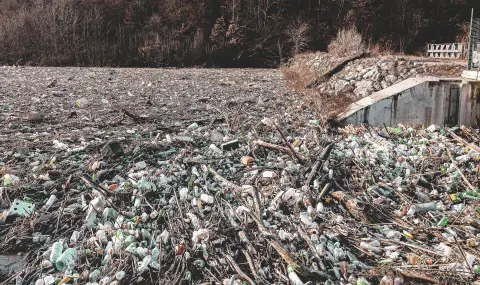Low requirements and significant gaps in data lead to the drastic difference between the high results with the recycling of packaging waste that Bulgaria reports to Brussels, and the poor achievements that are observed at the local level. A new report of the Environmental Association “For the Earth” reveals serious problems with official data regarding household waste management in Bulgaria and shows the need for deep reform of the existing system.
While our country claims 61.4% recycling of packaging waste, in half of the Bulgarian municipalities the recycling levels of plastic, metal, paper and glass are below 10%, and in 43 of them recycling is practically zero. These parallel realities are made possible by significant discrepancies in statistics combined with inadequate minimum legal requirements for exploiting organizations.
To cope with the quantities of packaging waste, the number, distribution and frequency of service of separate collection containers should be increased 2-3 times and available in all settlements. Due to the lack of working separate collection, the naturally low efficiency of separation plants (3-5%) means that our economy is losing from the incineration and landfilling of potentially valuable plastic raw materials. Many municipalities continue to rely on landfilling, and additional aggravating factors are waste incineration projects, including in Pavlikeni, Galabovo and Sliven, which undermine efforts to reduce and recycle domestic waste generated in the country.
As a result, more and more public funds are being spent on dealing with packaging waste, ultimately resulting in a “household waste” charge. Despite the significant, even for Europe, public costs for waste management in Bulgaria, only 4.8% of the materials are returned to the economy – more than twice less than the European Union average and five times less than the leading country, the Netherlands.
